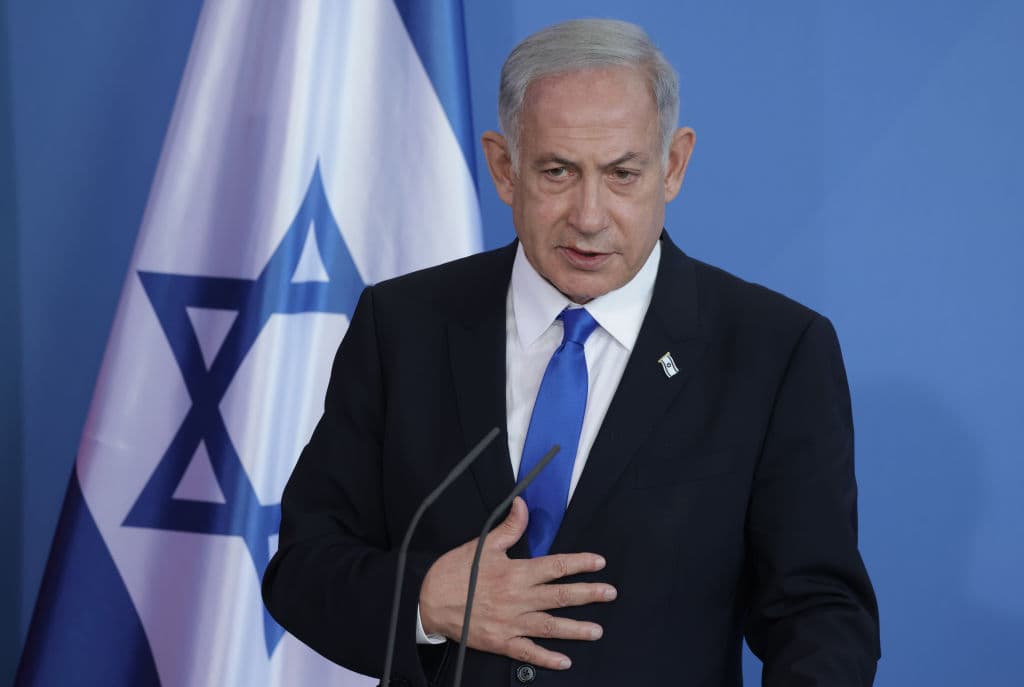Palestinian Advocates Increasing Efforts To Get International Court To Rule Against Israel’s Presence at Jerusalem
America, Britain, and a handful of democracies on alert over implications of latest drive for a declaration from the Hague, which is expected early next year.

America, Britain, and a handful of democracies recognize — as of now — the potential negative implications of a Hague court’s drive to declare Israel’s presence at Jerusalem and the West Bank illegal. Yet advocates are increasingly imploring their governments to side with the latest Palestinian tactics to undermine Israel’s legitimacy.
In December, the United Nations General Assembly asked the International Court of Justice to opine on Israel’s presence at the West Bank and East Jerusalem, and to demand its immediate withdrawal. The Hague-based ICJ asked interested countries to submit briefs on the “legal consequences arising from the policies and practices of Israel in the occupied Palestinian territory.”
The court set a July 25 deadline for the first batch of briefs to be filed, and 57 countries submitted opinions. Next, they are to reply to each others’ briefs before October 25. A final ruling is expected early next year. While the court is keeping the briefs confidential, several copies have been leaked to interested parties, with the intention of changing government positions.
A pro-Palestinian professor at the university of Nottingham, Victor Kattan, dismissed the British amicus brief to the ICJ as a “rather weak and uninformed document that portrays Israel’s long standing occupation of the West Bank and Gaza, and its annexation of East Jerusalem, as a bilateral dispute between two states.”
Mr. Kattan spoke to the left-leaning Guardian, which has published parts of the 43-page British brief, which includes some of London’s traditional positions: The ICJ is designed to settle disputes between countries, and it should not act without Israel’s consent; the Hague is ill-equipped to weigh the complex issues involved; its ruling could conflict with existing pacts; and the General Assembly already prejudged the ICJ’s outcome.
In an attempt to lobby the British government to change those principles, the Guardian cites other countries’ briefs that highlight the current Israeli government’s growing “pro-settlement” policies, as well as Mahmoud Abbas’s weak rule at Ramallah. Unlike the French and Irish briefs leaked to the Guardian, the British foreign office “makes no mention of the dire political situation in either Israel or Palestine,” the newspaper writes.
A Canadian submission to the ICJ was similarly leaked to the press. “People are trying to influence the October submissions,” a former attorney with the Department of State, Orde Kittrie, tells the Sun. Noting that tensions with Prime Minister Netanyahu’s government are playing a role in these advocacy efforts, he adds, “This isn’t about defending Bibi, it’s about defending the land-for-peace framework from extremists on both sides.”
Writing on the West Point website, Mr. Kittrie, now with the Foundation for Defense of Democracies, lists the relevant history of Israeli-Palestinian peacemaking since the post-1967 war Security Council resolution 242. The land-for-peace principle it established was later reaffirmed in the first Oslo Israeli-Palestinian accord, which called for negotiations leading to a permanent settlement of the dispute.
In contrast, the General Assembly’s December 30, 2022, resolution ignored negotiations and declared Israel’s actions in the West Bank and Jerusalem “illegal.” It asked the ICJ for a legal opinion on “ongoing violation by Israel” and “related discriminatory legislation and measures.”
America and its allies “should help ensure that the General Assembly does not succeed in imposing this one-sided and unproductive approach on the ICJ,” Mr. Kittrie writes.
The biased UN Human Rights Council’s permanent Commission of Inquiry, uniquely established to bash Israel, initiated the call to refer Israel to the Hague court. Following its cue, 87 countries at the General Assembly supported the referral, while 26 opposed, including Israel, America, Britain, and Germany. Most European countries abstained.
Jerusalem sources say Mr. Netanyahu is concerned over the pending ICJ ruling and is making calls for friendly countries to oppose it. An adversarial Hague ruling could harm Israel’s international relations.
As Mr. Kittrie notes, though, the resolution also has global implications. It ignores that Israel captured the territories in 1967 amid a defensive war, thus undermining the universal right for self-defense. It also threatens national sovereignty, and erodes the authority of the Security Council by reversing its resolutions based on land for peace.
For years now, Ramallah has tried to “manipulate the International Criminal Court in order to criminalize Israel’s political and military leadership,” a former legal adviser to the Israeli foreign ministry, Alan Baker, writes on the Jerusalem Center of Public Affairs’ website. Now, he adds, the Palestinian legal team seems to have shifted tactics and is seeking to “criminalize Israel itself at the ICJ.”
Even as the state department increasingly expresses criticism of the Israeli government’s policies, it apparently recognizes the dangers involved in an adverse ICJ ruling in this case. For now, it seems, its brief is calling on the Hague court to drop the case — much to the chagrin of a growing pro-Palestinian chorus.

